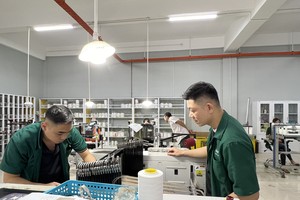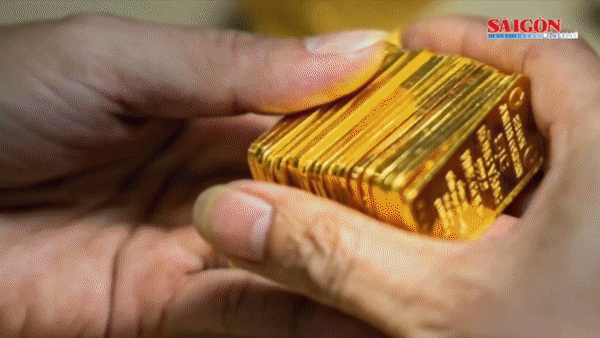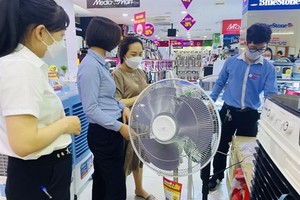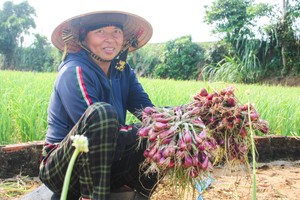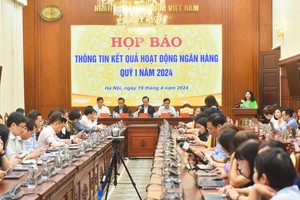 Besides the known name of Highlands Coffee, Vietnam has exploded with old and new names such as Phuc Long Coffee & Tea, PhinDeli Café, Katinat, and Café Amazon. (Photo cafef.vn)
Besides the known name of Highlands Coffee, Vietnam has exploded with old and new names such as Phuc Long Coffee & Tea, PhinDeli Café, Katinat, and Café Amazon. (Photo cafef.vn)
Since the pandemic, the country has exploded with old and new names such as Phuc Long Coffee & Tea, PhinDeli Café, Katinat, and Café Amazon.
Last year, PhinDeli Café, after returning to Nova Service, a member of realty Nova Group, increased rapidly.
Currently, PhinDeli Café has more than 20 stores with a large area in prime locations in Ho Chi Minh City, such as Dong Khoi, Nguyen Hue, Nguyen Thi Minh Khai, Phu Dong crossroads, Nguyen Du, Tran Hung Dao, and Dien Bien Phu.
PhinDeli Café also appears in many urban areas and tourism-resort complexes of Nova Group in various provinces and cities.
A representative of Nova Service said it would develop 100 PhinDeli Café stores and kiosks across the country this year. By 2026, it will increase to 2,500 stores domestically and abroad, such as in North America, China, the Republci of Korea, and Japan.
Media reported that in addition to PhinDeli Café, Nova Service held many tea and coffee outlets from mid- to high-end segments, such as Gloria Jean’s, Co Ba, Beach Club Coffee, and Kalea Coffee.
Established in 2016, the Katinat Saigon Kafe chain also grew speedily. By the end of 2021, only 10 small coffee shops were scattered in the centre of HCMC.
But from the beginning of 2022, Katinat Saigon Kafe has had 33 large stores in many prime locations in the city and neighbouring provinces and aimed to expand the chain to 50 stores.
Phuc Long Coffee & Tea, after belonging to Masan Group in 2021, has expanded its system to 93 stores and 981 integrated kiosks in the supermarket chain of WinMart.
According to Masan, the number of Phuc Long Coffee & Tea stores and kiosks will continue to increase from now until the end of the year because this is the business segment that is bringing great revenue growth to the group.
Meanwhile, Café Amazon, a member of Central Group and one of the largest coffee brands in Thailand with more than 3,000 stores, has been present in Vietnam since 2019, but due to the pandemic it has delayed plans for expansion.
Up to now, only 12 Amazon Café stores have been opened in Vietnam. Taking advantage of the market recovery, Central Group plans to open 26 more Café Amazon stores in the southern region this year and aims to expand nationwide in the future.
The brand will focus on its franchise strategy to accelerate the chain's presence.
As a known name, The Coffee House, after closing more than 40 stores during two years of the pandemic, has regained stores and now has 157.
Ngo Nguyen Kha, CEO of The Coffee House, said: “Knowing the successful formula to open the chain before the pandemic cannot be applied because the customer experience has changed. Therefore, the company is not racing to open the chain at this stage but looking for more suitable value."
He added: “Customers now need to experience more products, so we have focused on products, introduced new product sets and made a good impression with each customer. “
Do Duy Thanh - CEO of FnB Directo Company, a training specialist in food service business strategy, is consulting with several new coffee chains that will be launched by the end of this year.
Thanh said: “Compared to before the pandemic, investors approach the market in a more scientific and professional manner by participating in training courses when they about to open a shop. Before, many people just put in their money and got to work. Therefore, with high growth, the industry’s prospects are expected to be optimistic in the next few years.”
He added that the F&B industry was under tremendous pressure on investment costs, and chains must respond flexibly to keep customers rather than increase menu prices accordingly because the Vietnamese market is very sensitive to price.
Many systems are redoing the menu to increase healthy but low-cost dishes whilst reducing labour-intensive dishes to improve business efficiency.
Thanh said: “The coffee market has many new chains but no clear style, so customers are not loyal and easily fall into price competition. When personalising a coffee chain, investors should focus on and create loyal customers and compete with long-standing famous coffee chains.”
Tran The Vu Thanh, the Sales Director of iPOS.vn, which provides management solutions for the F&B industry in the south, said: “Vietnam’s industry is changing positively. Since the beginning of the year, customers have come to us in droves. They need tools to optimise management, use technology to have accurate data, and help them make more accurate decisions. Digitisation is a solution to help the F&B industry solve operational problems effectively.”
Meanwhile, brand expert Vo Van Quang said that coffee chains have become very competitive in the market, so the probability of success will be for businesses with more professional and larger capital sources and support value chains.
“The essence of coffee is to drink immediately. The cost-profit ratio is large, so it is easy to make a profit, but it is no longer a lucrative market. In such a situation, some chains develop more by-products or diversify products and services to optimise their premises and ensure profits per square meter. It is important that when expanding the business to other products besides coffee and water, businesses keep their core identity,” he added.
Some expanded coffee chains are run by people from showbiz, like The Bunny of singer Ngo Kien Huy launched in 2020, which after surviving from pandemic for two years has expanded to three branches in prime locations in HCMC.
Huy has started to make profits amid fiercer competition in the segment.
Masan has recently poured another VND3.6 trillion into the Phuc Long chain, raising its valuation to VND10 trillion.
